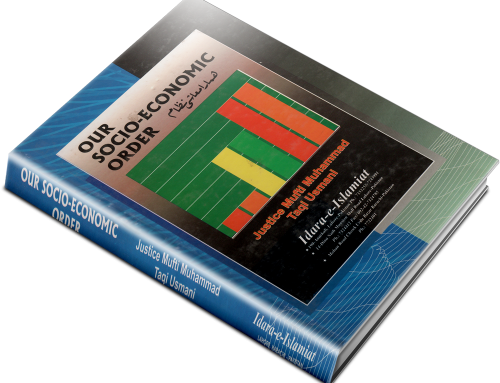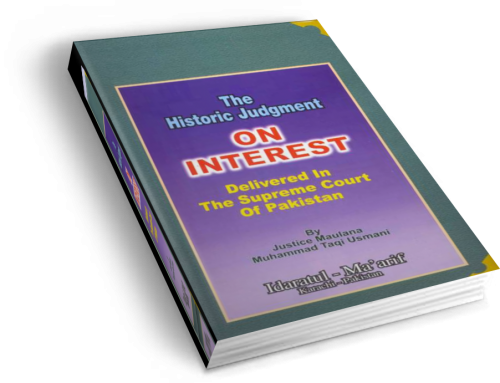بسم الله الرحمن الرحيم
الحمد للہ رب العالمین٬ والصلوۃ والسلام علی سيدنا ومولانا محمد وعلی آلہ وأصحابہ أجمعین وعلی كل من تبعہم بإحسان إلی يوم الدين۔أمابعد
Post Crisis Reforms:
Some Points to Ponder
Modern economics has been used to a purely materialistic and secular approach that does not allow religious concepts to interfere with its theories and concepts, on the premise that economy is outside the domain of religion. It is, however, an interesting irony that every dollar note has the admission: “In God we trust”, but when it comes to develop theories to earn dollars or to distribute or spend them, trust is placed only on human ideas based on personal assessments; God is held totally out of picture, as being irrelevant to economic activities!!!
It is perhaps for the first time that, as an aftermath of the present financial crisis, when different quarters are coming up with different suggestions to solve the problem, the ‘World Economic Forum’ has invited representatives of religion to give their input to the initiative of reshaping the economic set-up on the basis of values, principles and fresh thoughts. This commendable initiative deserves full support from religious circles. As a humble student of Islamic disciplines, and particularly of Islamic economic principles, I would like to highlight some basic points, derived from Islamic economic precepts, that I believe, are essential for independent and fresh consideration while seeking solutions to our economic problems.
Before proceeding further, it is necessary to clarify two points here:
1- When we speak of Islamic Finance or Islamic economic principles, it is generally assumed that these principles are emphasized by Muslim scholars only to satisfy the religious requirement of Muslims, or that they are meant only for Muslims to the exclusion of all others. This is an incorrect assumption. Although Islam is basically represented by a set of beliefs without which it cannot give its full fruits, the worldly benefits of its social, political and economic principles are not restricted to Muslims; they are meant for the common good of humanity at large.
2- What this article is going to contend may look too radical in the present environment, dominated by conventional economic thoughts, but if we are seeking a comprehensive reform in our present system which has been proven by empirical evidence to be faulty, we should not be afraid of any suggestion of radical change, so far as it is based on sound and strong arguments. The universal nature of the present crisis needs universal change in our present financial set up; a patch up solution to repair only minor wear and tear cannot work. We need an overhaul of our economic system that may redesign it on the basis of true values and sound principles that make it equitable, well-balanced and inherently immune from turmoil.
What has encouraged me to present this article are the valuable remarks of the Chairman of ‘The World Economic Forum’ in its last annual meeting, specially, his following words;
“Today we have reached a tipping point, which leaves us with only one choice: change or face the continued decline and misery.”
Since change is necessary, no idea for a global change should be beyond the scope of fresh thinking. This article cannot discuss all the details of the reform needed in our present system; however, some fundamental points are being presented for serious consideration.






